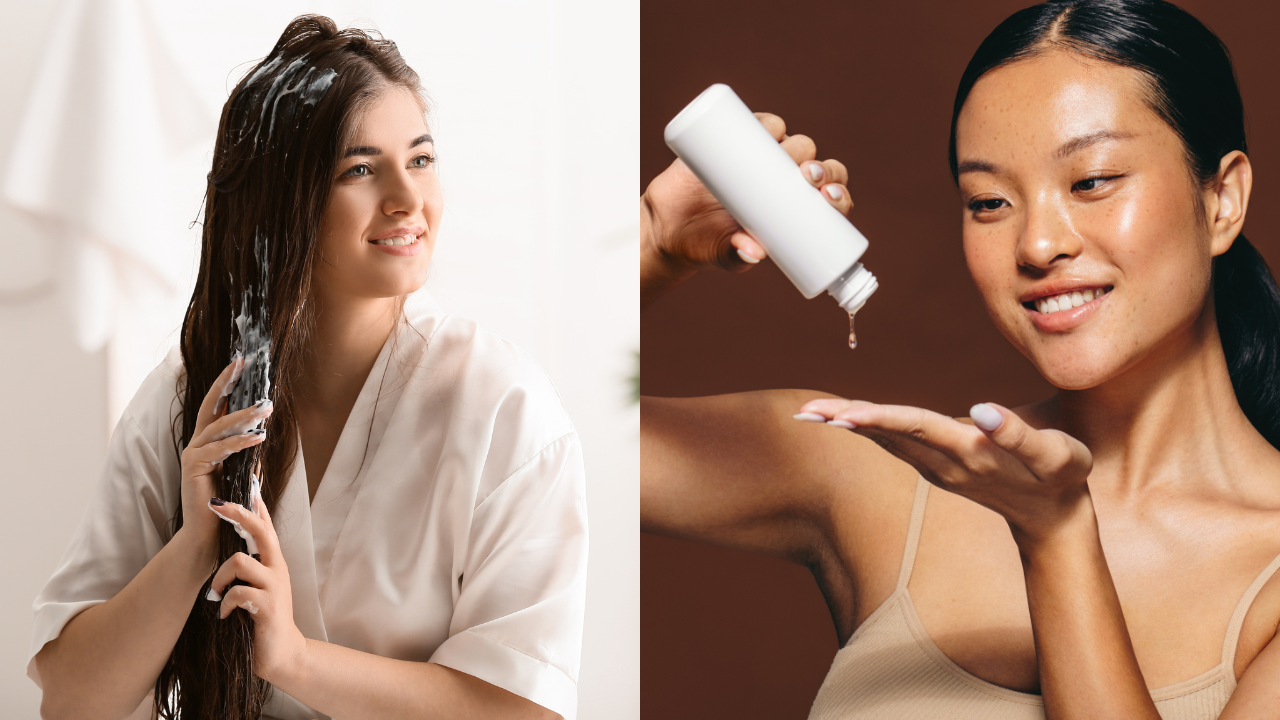
Winter Skincare and Haircare: A popular line—If winter comes, can spring be far behind?—from poet Percy Bysshe Shelley’s poem Ode to the West Wind simply means spring, which symbolises hope and renewal, is never far away, even during the depths of winter. Similarly, skincare issues that come along with winter can be tackled if you take proper care. Skin dryness as well as hair and scalp dryness is widespread during the cold months, leading to irritated skin and damage. Providing enough moisture while indulging yourself in a dedicated skincare routine is essential.
However, to understand what our skin and hair need as the weather changes, we speak with Dr Shweta Mishra, a facial cosmetic and aesthetic surgeon from Sharva Clinic in New Delhi.
Maintaining a vibrant and wholesome appearance over the changing seasons requires taking good care of your skin and hair. “Both the skin and hair are significantly impacted by weather changes, as different environmental conditions can strip the skin of moisture, increase oil production, and cause irritation or damage,” says Dr Mishra.
Here are Dr Mishra’s tips on how to effectively manage these changes, and the best hair care products and skincare ingredients to tap
Hydration is key
- For Skin: The air gets drier as the seasons change, especially in the winter, and skin tends to lose moisture more quickly. A high-quality, medical-grade moisturiser is necessary to combat this. Hyaluronic acid, glycerin, and ceramides are examples of ingredients that help seal in moisture and ward off dryness and irritation. To prevent blocking pores in warmer weather, use a lighter, oil-free moisturiser.
- For hair: Just like your skin, your scalp may get dry and irritated in the winter months, resulting in dandruff. Make use of moisturising, sulphate-free conditioner and shampoo. Seek out elements that will feed your scalp without adding weight to your hair, such as jojoba oil and argan oil.
Cleansing routine adjustments
- For skin: During colder weather, your skin produces less oil, which means harsh cleansers can further strip the skin of essential moisture. Go for a gentle, non-foaming cleanser that won’t disrupt the skin’s natural barrier. During warmer months, when the skin tends to produce more oil, a foaming or salicylic acid-based cleanser may be better suited to prevent breakouts and keep pores clear.
- For hair: Overwashing can strip the hair of its natural oils, particularly in colder weather. It’s important to reduce the frequency of washing and opt for a gentle, moisturising shampoo. During humid, warmer months, scalp oil production increases, so using a clarifying shampoo once a week can help prevent product buildup and maintain scalp health.
Sun protection is a necessity
- For skin: Sunscreen should never be seasonal. Harmful UV rays can penetrate clouds and cause premature ageing and pigmentation and increase the risk of skin cancers. Use a broad-spectrum SPF 30 or higher, even during winter months or cloudy days. In the warmer months, it is essential to reapply sunscreen frequently, especially if you are outdoors, sweating, or swimming.
- For hair: UV exposure can also damage your hair, causing it to become brittle and dry. To protect your hair from the sun, wear a hat or use hair products containing UV filters.
Targeted treatments for weather-specific issues
- For skin: In colder weather, your skin may benefit from professional treatments like chemical peels, microneedling, or laser resurfacing to address dryness, dullness, and sun damage accumulated from the summer. In the summer, focus on treatments that reduce oil and acne, like salicylic acid peels or LED light therapy.
- For hair: Cold, dry air can make hair frizzy and more prone to breakage. Consider using leave-in conditioners or deep conditioning masks once a week to restore moisture. During hot and humid weather, lightweight serums or anti-frizz sprays can help keep your hair smooth and manageable.
Diet and supplements
- For skin: Omega-3 fatty acids, vitamins C and E, and antioxidants can help protect your skin from the inside out, aiding in moisture retention and reducing inflammation. Consider supplements that support skin hydration and elasticity, such as collagen peptides.
- For hair: Nutrients like biotin, zinc, and vitamin D are essential for healthy hair growth. Ensure that your diet is rich in these vitamins, or consider a high-quality hair supplement recommended by your physician.
Don’t forget exfoliation
- For skin: Regular exfoliation helps remove dead skin cells, which can accumulate more rapidly in colder weather. However, be careful not to over-exfoliate, as this can lead to sensitivity and irritation. For a controlled and safe exfoliation, consider using alpha-hydroxy acids (AHAs) or beta-hydroxy acids (BHAs) in your skincare routine.
- For hair: Exfoliating the scalp can also be beneficial. Scalp exfoliation removes dead skin cells and product buildup, which can clog hair follicles and prevent healthy hair growth. Look for scalp scrubs or treatments designed for this purpose.

